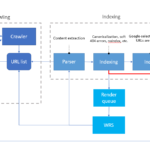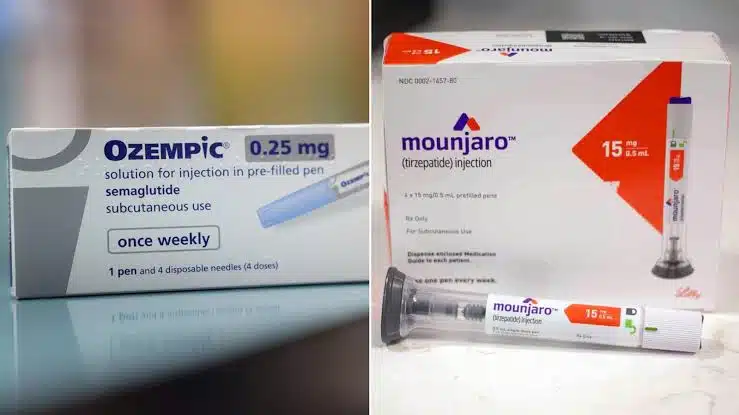The Complete Truth About Ozempic, Mounjaro & Weight Loss: A Detailed Science Report
By Supreet Kaur | Fittr Coach
Executive Summary
Drugs like Ozempic, Mounjaro, Wegovy, and other GLP-1/GIP agonists are being marketed as “miracle weight loss injections.” But despite the massive online hype, scientific evidence shows these medications do not burn fat, do not increase metabolism, and cannot create sustainable weight loss unless paired with lifestyle habits.
This report breaks down:
- the science behind these drugs
- their real impact on fat loss
- side effects and metabolic consequences
- reasons for rapid weight regain
- ethical concerns
- sustainable fat-loss strategies
- who should and should NOT use them
This is your complete, evidence-based guide — simplified for real people, but rooted in clinical science.
Understanding Ozempic & Mounjaro
What These Medications Actually Are
Ozempic (semaglutide) and Mounjaro (tirzepatide) are injectable prescription drugs originally created to treat Type 2 Diabetes.
They work by activating gut hormones such as:
- GLP-1 (Glucagon-like peptide-1)
- GIP (Glucose-dependent insulinotropic polypeptide)
These hormones influence:
- appetite
- blood glucose
- gastric emptying
- insulin release
Do They Melt Fat? No.
These drugs do not enhance fat oxidation, do not stimulate thermogenesis, and do not burn calories.
Weight loss from GLP-1 drugs happens ONLY because:
- appetite is suppressed
- caloric intake drastically drops
- people eat fewer meals
- cravings reduce
- portions shrink
This is medically assisted calorie restriction, not physiological fat burning.
How Ozempic & Mounjaro Affect Your Body
Appetite Regulation
GLP-1 medications change how the brain interprets hunger by working on:
- the hypothalamus
- the vagus nerve
- gut-brain axis pathways
Effects Include:
- reduced hunger
- delayed gastric emptying
- increased fullness
- less motivation to eat
- altered reward response to food
This is why people suddenly eat 30–50% fewer calories.
Metabolic Impact
Slowing of Digestive Processes
These drugs slow the movement of food from the stomach into the intestines.
This reduces appetite but also causes:
- nausea
- constipation
- acid reflux
- bloating
Muscle Loss
Clinical trials consistently show:
- 30–40% of weight lost on GLP-1 drugs is LEAN MASS
- muscle loss reduces metabolic rate
- lower metabolic rate → easier weight regain
This is a major reason rebound weight gain is extremely common.
The Hidden Problems No One Talks About
1. “Ozempic Face” — Why Your Face Looks Older
Rapid weight loss + loss of muscle & fat from the face =
- sagging cheeks
- hollow temples
- loose skin
- premature aging
This isn’t a side effect of the drug.
This is a side effect of rapid, unstructured weight loss.
2. Digestive & Gastrointestinal Issues
Up to 70% of users report:
- nausea
- diarrhea
- vomiting
- delayed gastric emptying
- gastroparesis-like symptoms
Some require hospitalization for dehydration due to severe GI symptoms.
3. Emotional & Psychological Dependence
Many users experience:
- panic at the thought of stopping
- fear of hunger returning
- belief that weight loss is impossible without the drug
- dependency behavior
This leads to long-term psychological reliance, not long-term fat loss.
4. Weight Cycling
This is the biggest problem:
Studies show 65% regain the lost weight within 12 months after stopping.
Why?
- appetite surge
- metabolic slowdown
- lost muscle mass
- poor lifestyle habits
You go back to your old lifestyle → your body goes back to its old weight.
Why People Regain Weight After Stopping Ozempic or Mounjaro
1. Appetite Returns Faster & Stronger
When you stop the drug:
- hunger hormones spike
- cravings increase
- satiety hormones drop
This is why many people overeat after stopping.
2. No Habits Were Built
Weight loss medication helps reduce calories…
but it does not teach:
- portion control
- nutritional awareness
- protein prioritization
- strength training
- meal structure
- emotional eating management
Without habits, weight regain is almost guaranteed.
3. Muscle Loss → Lower Metabolism
Loss of lean mass = lower calorie burn.
So when you start eating normally again, the body stores fat faster.
4. Psychological Rebound
When hunger returns, many people:
- panic
- binge eat
- lose control
- feel guilt → binge more
This is how rebound weight gain begins.
When These Drugs Are Useful
Ozempic/Mounjaro can be extremely helpful for:
- Type 2 diabetes
- severe obesity
- PCOS with insulin resistance
- metabolic syndrome
- NAFLD (fatty liver disease)
- people who medically require appetite control
But even for these cases — medication works best WITH structured lifestyle coaching.
Who Should NOT Use These Drugs
Avoid using Ozempic or Mounjaro if:
- you want a shortcut
- you’re not ready to build habits
- you don’t understand calories or nutrition
- you expect permanent results from a temporary drug
- you fear regaining weight
- you cannot commit to exercise
These injections are NOT substitutes for lifestyle change.
Sustainable Weight Loss: What Actually Works
1. Strength Training
This is the single strongest long-term fat-loss tool.
Benefits:
- preserves muscle
- increases metabolic rate
- improves insulin sensitivity
- builds shape & tone
- prevents rebound gain
Aim for 3–4 sessions a week.
2. Nutrition: Eat Better, Not Less
A sustainable diet includes:
- high protein (1.2–1.6 g/kg)
- fiber-rich foods
- balanced carbs
- adequate water
- 80–20 flexibility
You don’t need starvation.
You need structure.
3. Sleep & Stress
Poor sleep increases hunger hormones:
- ghrelin ↑
- cortisol ↑
- cravings ↑
Fixing sleep is often more effective than extreme diets.
4. Habit Building
Real fat-loss results come from:
- daily routine
- meal prepping
- step count
- consistent training
- hydration
- accountability
This is where coaching truly matters.
The Final Takeaway — Discipline Beats Injections
Ozempic and Mounjaro can suppress hunger.
But they cannot:
- teach discipline
- build muscle
- improve mindset
- fix lifestyle
- create consistency
Long-term fat loss will always be built on:
- habits
- strength
- patience
- education
- accountability
- sustainable routines
Not injections.
Not shortcuts.
Not temporary hunger suppression.
Conclusion
If you’re choosing weight loss injections, understand:
They help you eat less — they DO NOT help you live better.
Only habits can do that.
You deserve lasting results.
You deserve a strong, healthy relationship with your body.
And you deserve a method that works for life — not just for 12 weeks.
Follow @fittrwithsupreet for evidence-based weight loss insights
Stay updated with science-backed coaching, transformation tips, and fat-loss truths.









